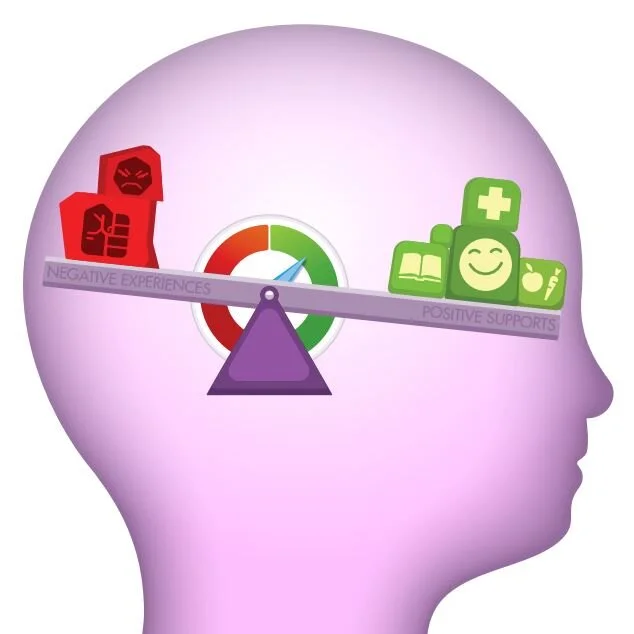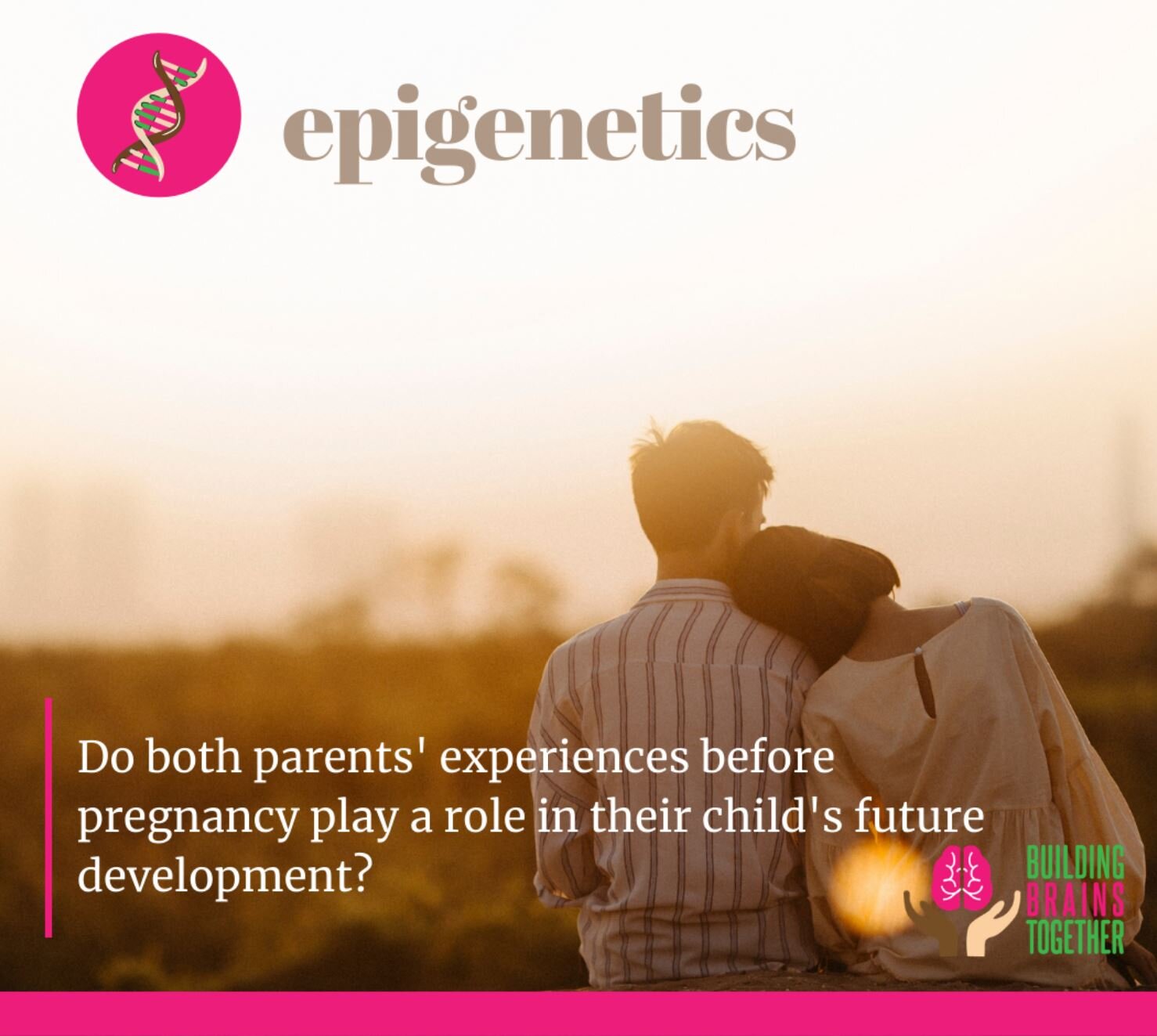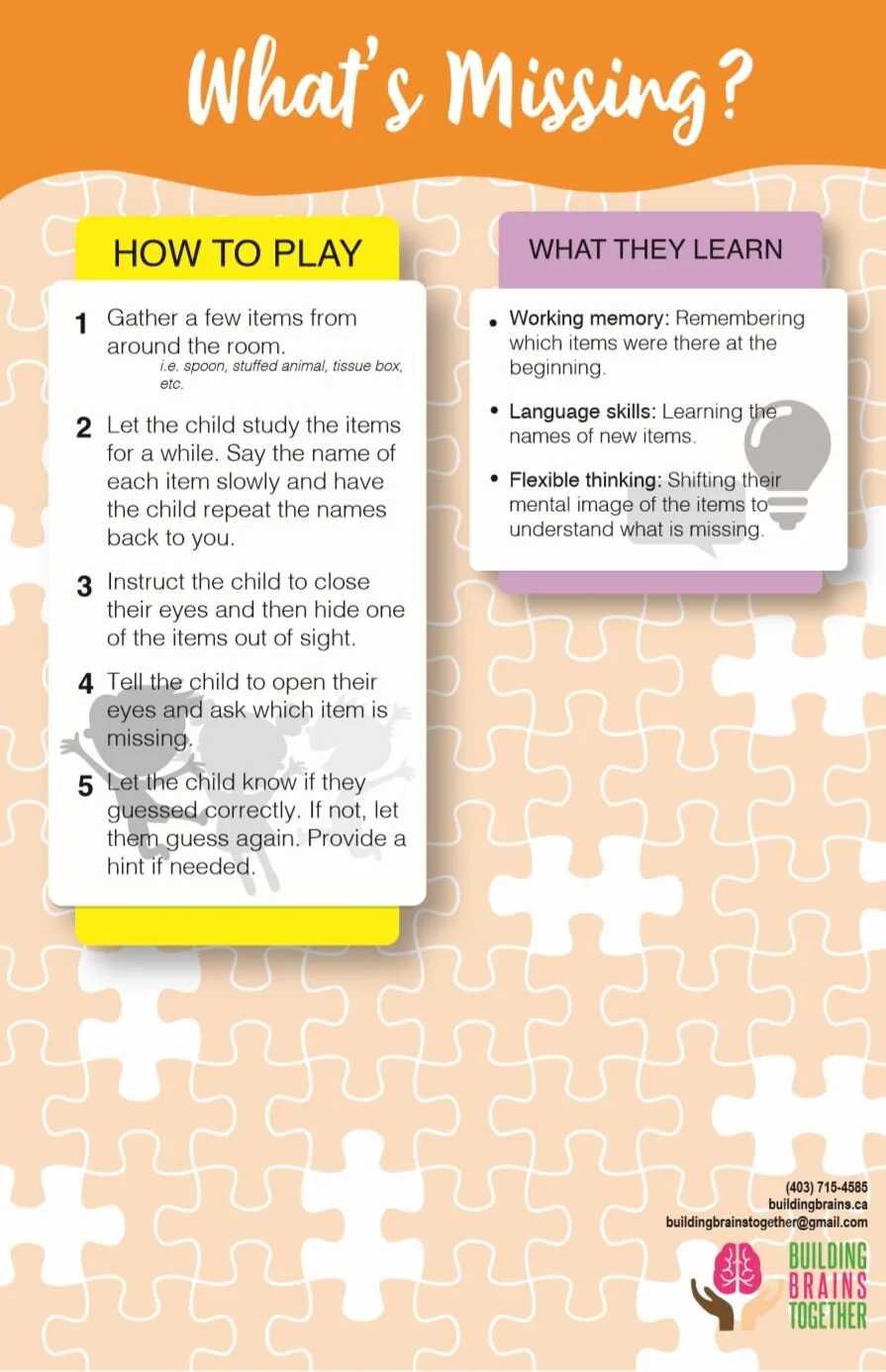Brain Building Blogs

6 Stages of Social Play
In this post we will dig deeper to explore how social play develops within the first five years of a child’s life.

Engaging in Early Language and Literacy Activities: Infancy
Starting at infancy, parents and caregivers model the pleasure that reading and writing bring by making time to read with their child, engaging in conversations about the text and the illustrations, providing materials and opportunities to write and in celebrating the joy that each literacy encounter brings. In today’s blog, Dr. Noella Piquette shares several early language and literacy activities to engage in with your child during infancy.

Engaging in Early Language and Literacy Activities: The Start
Parents and caregivers play a vital role in the young child’s language and literacy development. Over the next few blog posts, Dr. Noella Piquette will provide information for parents and caregivers to facilitate their child’s language and literacy development.

The Art of Dressing-Up and Engaging in Dramatic Play
Your child’s brain will delight in its ability to practice a new role through the act of dressing up and engaging in dramatic play. Check out this week’s blog where we take a quick look at what some of the benefits of encouraging your child to dress-up are.

Engaging in Play Through Open-Ended Toys
Wanting to increase your child’s creativity and imagination? Wishing your child will develop a strong sense of confidence and make their own decisions? Looking for individual and group play activities? You’ll want to read this week’s blog on open-ended play!

Play Therapy
“For children to “play out” their experiences and feelings is the most natural, dynamic, and self-healing process in which they can engage”

Gratitude’s Impact on Health
Much of our time and energy is spent pursuing things we currently don’t have. Gratitude reverses our priorities to help us appreciate the people and things that we do have.

Managing Big Feelings
When it comes to big emotions, teaching children a range of strong coping skills can help them with their overall wellbeing, increase their resilience, and help them deal with challenging life circumstances in healthy ways both now and in the future.

Benefits of Community Involvement
Have you felt isolated from your community over the past 18 months? Read this week’s Blog Post to learn some of the benefits of community connectedness and how our free Family Outdoor play events will help facilitate connections this summer.

Connectedness During COVID-19
Social connectedness has been and continues to be a key factor in promoting positive mental health and well-being. By promoting quality interactions with our children they will continue to feel valued, loved, and cared for and the connection will continue to grow.

How to Build a Strong Brain
The construction of a house always begins with the laying of a foundation. The same is true when building a strong brain.

Emotional Literacy
Is it true that happy people live longer? Read about emotional literacy and learn how it impacts our mental wellbeing and physical health.

Why Play Outside?!
Children’s time outside is diminishing as our society moves towards a more sedentary lifestyle. Take a look at six great reason to get outside and play.

The Resilience Scale
Resilience is defined by the interrelationship between our genes and life experiences. A lot can be done by parents, caregivers, teachers, and coaches, to positively influence and strengthen a child’s resiliency so that they are better equipped for success throughout their lifetime.

Serve and Return
Serve and return is a very easy concept to keep in the back of our minds as we engage with children and infants throughout our lifetimes.

Transgenerational Epigenetics
Experiences gone through by both a mother and father even before pregnancy, might also be playing a role in that child’s future development.

Benefits of Block Play
Did you know six standard LEGO bricks can be combined in more than 915 million ways? Find out more about the benefits of block play.

Why Build Executive Functions?
Executive function skill level has been found to predict school success, benefit behavioural control, overall health, and enable individuals to make greater contributions to the work force.

What’s Missing?
What’s Missing helps children build working memory, language skills, and ability to think flexibly.

Understanding Stress
When stress is temporary and buffered by supportive relationships, it can be helpful, build resilience, and increase performance.